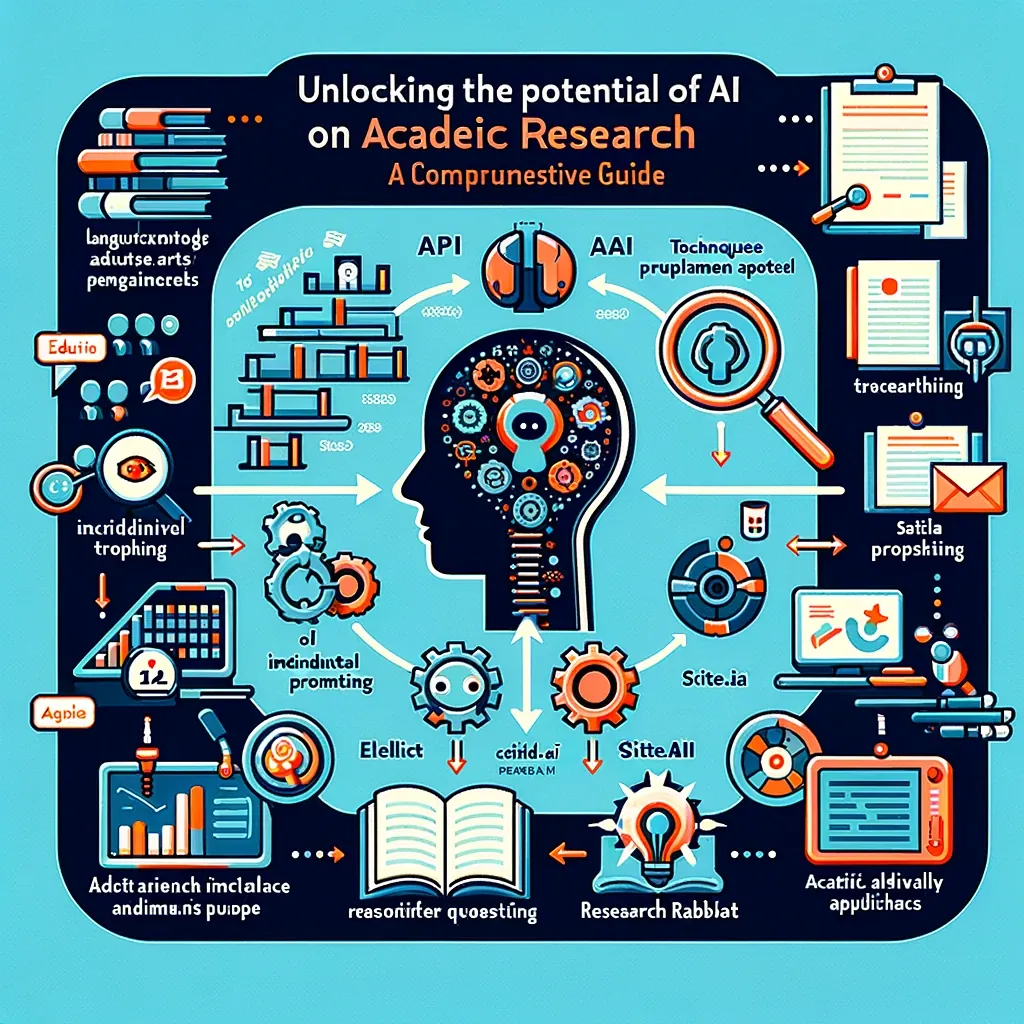The intersection of artificial intelligence (AI) and academia heralds a new era of scholarly exploration and innovation. As we delve into the transformative capabilities of AI language models and other AI-powered tools, the landscape of academic research is poised for a remarkable evolution. This guide aims to illuminate the myriad ways in which AI technology can enhance, streamline, and democratize academic endeavors, offering insights into some of the most impactful tools at the forefront of this revolution.
The Role of AI Language Models in Academic Research
AI language models, such as ChatGPT, are at the vanguard of academic research innovation. These models are not merely tools for generating text; they are sophisticated partners capable of assisting researchers in a variety of tasks, from drafting articles to conceptualizing research frameworks. Understanding how to harness these models effectively can significantly reduce the time and effort involved in various stages of research.
Mastering Incremental Prompting for Enhanced Research Outcomes
Incremental prompting is a technique that exemplifies the strategic utilization of AI in academia. By breaking down complex research tasks into smaller, manageable steps, and guiding AI models through these steps with precise prompts, researchers can extract highly relevant and sophisticated outputs. This method not only aids in the development of structured academic work but also fosters a more in-depth exploration of subject matter, thereby elevating the quality and depth of academic inquiries.
Transformative AI Tools for Academic Excellence
The ecosystem of AI-driven tools for academic research is rich and varied, offering solutions that cater to diverse needs and disciplines. Here, we highlight some of the most promising tools that have the potential to significantly enhance academic research methodologies.
Consensus: Bridging AI and Scholarly Insight
Consensus stands out as an AI-powered search engine that marries the intuitive query capabilities of AI with the rigor of academic scholarship. By focusing on delivering consensus-based answers to complex questions, this tool offers researchers a nuanced understanding of their topics of interest, grounded in the collective wisdom of the academic community.
Elicit.org: The AI Research Assistant
Elicit.org represents a leap forward in AI-assisted academic research, providing a platform for engaging in intelligent conversations with a focus on research-based knowledge. Its ability to unearth relevant papers beyond perfect keyword matches and to distill key insights from scholarly literature makes it an invaluable asset for researchers seeking to deepen their understanding of specific fields.
Scite.ai: Ensuring Credible Citations
In an era where the accuracy of information is paramount, Scite.ai emerges as a critical tool for verifying the credibility of citations. By offering access to real citations of published papers and highlighting corroborations or refutations of claims, Scite.ai enhances the reliability and integrity of academic work.
Research Rabbit: Streamlining Research Discovery
Dubbed the “Spotify of research,” Research Rabbit revolutionizes the way academics discover and organize scholarly literature. By creating collections of papers and leveraging AI to suggest relevant new content, this tool facilitates a more efficient and personalized research process.
ChatPDF: Simplifying Research Paper Analysis
ChatPDF addresses the challenges of analyzing dense academic papers by providing concise summaries and enabling users to ask targeted questions about the content. This tool exemplifies the potential of AI to make academic literature more accessible and manageable for researchers.
The Future of AI in Academic Research
The integration of AI into academic research is not just a trend; it is a paradigm shift that promises to redefine the boundaries of knowledge and inquiry. As we continue to explore and embrace these technologies, the potential for AI to revolutionize education and research becomes increasingly evident. The tools and techniques discussed here represent just the beginning of what is possible when human intellect is augmented by artificial intelligence.
Conclusion
The symbiosis between AI and academia is paving the way for unprecedented advancements in research methodologies and educational practices. By leveraging the power of AI language models and specialized tools, researchers can enhance the efficiency, depth, and breadth of their work. As we look to the future, it is clear that the potential of AI in academic research is boundless, offering exciting opportunities for discovery and innovation.
